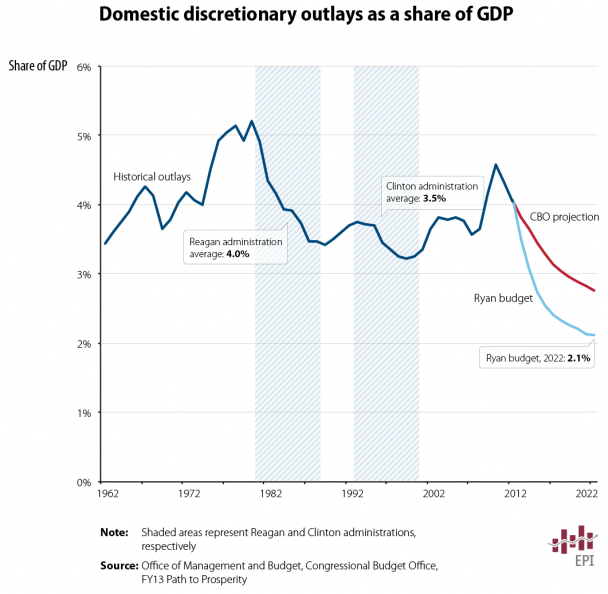A lot worse. This should make you sick and most likely you will.
This report from the Center for Budget and Policies Priorities via digby:
 Today’s Census report shows that in 2010 (pdf), the share of all Americans and the share of children living in poverty, the number and share of people living in “deep poverty,” and the number without health insurance all reached their highest level in many years – in some cases, in several decades – while median household income fell significantly after adjusting for inflation. The data also show that many of these grim figures and the level of hardship would have been much worse if not for key federal programs such as unemployment insurance, the Earned Income Tax Credit, food stamps, and Medicaid. Without unemployment insurance, for instance, 3.2 million more Americans would have fallen into poverty, Census said. All of that raises the stakes for the decisions that President Obama and Congress will make in coming months about whether to extend initiatives that were designed to address hardship during the recession, as well as whether to abide by a principle that the Bowles-Simpson commission report established that deficit-reduction plans should not increase poverty and thus should shield basic low-income assistance programs.
Today’s Census report shows that in 2010 (pdf), the share of all Americans and the share of children living in poverty, the number and share of people living in “deep poverty,” and the number without health insurance all reached their highest level in many years – in some cases, in several decades – while median household income fell significantly after adjusting for inflation. The data also show that many of these grim figures and the level of hardship would have been much worse if not for key federal programs such as unemployment insurance, the Earned Income Tax Credit, food stamps, and Medicaid. Without unemployment insurance, for instance, 3.2 million more Americans would have fallen into poverty, Census said. All of that raises the stakes for the decisions that President Obama and Congress will make in coming months about whether to extend initiatives that were designed to address hardship during the recession, as well as whether to abide by a principle that the Bowles-Simpson commission report established that deficit-reduction plans should not increase poverty and thus should shield basic low-income assistance programs.
Specifically, today’s report shows that:
In 2010, the share of Americans living in poverty reached 15.1 percent while the share of children in poverty hit 22 percent – both the highest levels in 17 years – while the number of people living in poverty hit 46.2 million, the highest level on record with data back to 1959.
Both the number and percentage of people living in “deep poverty” – with incomes below half of the poverty line – hit record highs, with these data going back to 1975. Some 20.5 million Americans had cash incomes below half of the poverty line (below $11,157 for a family of four, and below $5,672 for a non-elderly person living alone) last year.
Median household income fell 2.3 percent, or $1,154, in 2010, after adjusting for inflation, and those at the bottom of the income scale have lost far more ground than those at the top. Since median income hit its peak in 1999, income (adjusted for inflation) has fallen 12.1 percent for those at the 10th income percentile but only 1.5 percent for those at the 90th percentile. The income gap between those at the 10th and 90th percentile was the highest on record. These data go back to 1967.
The number of Americans without health insurance climbed by 900,000 to 49.9 million, another record, with data back to 1999. The percentage of Americans without insurance remained statistically unchanged at 16.3 percent. Nearly one of every six Americans was uninsured.
(emphasis mine)
Americans turned to public health insurance in 2010
(Reuters) – More Americans became reliant on public health insurance and lost coverage sponsored by their employers in 2010, the U.S. government said on Tuesday.
The U.S. Census Bureau’s annual report on income, poverty and health insurance coverage showed that more people turned to state and federal programs as employer-based plans became more expensive and as unemployment levels stayed stubbornly high.
About 1.5 million fewer Americans got their health insurance plans covered by their employers in 2010, while 1.8 million more joined government insurance plans.
snip
Healthcare programs, which account for a large percentage of the federal budget, are also expected to get a close scrutiny from a bipartisan congressional “super committee” that aims to slash at least $1.2 trillion from the U.S. deficit over 10 years.
snip
The number of people covered by Medicaid, the government program for the poor, increased 1.5 percent to 48.6 million, and Medicare, the government program for the elderly, 2.1 percent to 44.3 million.
Employers remained the biggest source of insurance coverage, with 169.3 million Americans covered by employer-based plans in 2010. That number, however, has been on a steep decline since 2000, when it reached 181.9 million, as such plans get more and more expensive.
The ACA does not fully kick in until 2014. From Jon Walker at FDL
Elections are often referendums on the general state of the economy. The electorate tends to decide whether or not to remove the incumbent party from power based on how well the economy is doing. Americans voters, for the most part, decide whether or not to keep a president based on the answer to a simple question like, “Are you better off than you were four years ago?”
Since January of 2009, when President Obama took office, the American people as a whole are noticeably worse off financially. This is a serious problem for the Obama campaign, and why they desperately need strong economic growth between now and the election.
So much for electoral victory.



Recent Comments